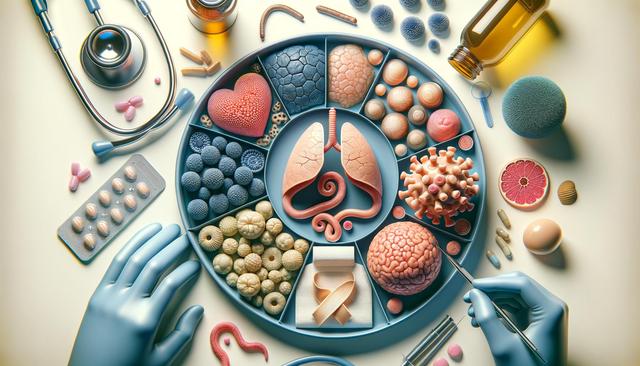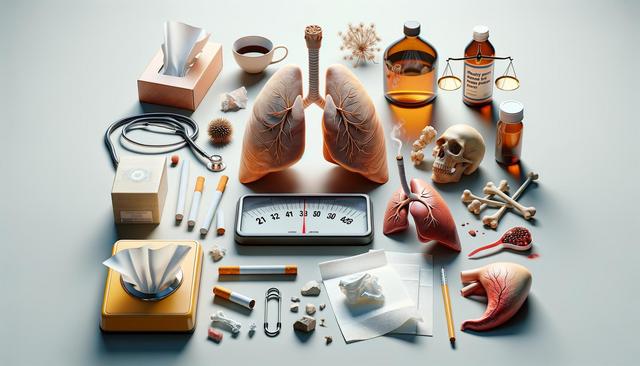Why Recognizing Early Cancer Symptoms Matters
Detecting cancer in its early stages can significantly improve treatment outcomes and survival rates. Many types of cancer begin with subtle symptoms that are often mistaken for less serious conditions. However, knowing what to look out for can make a crucial difference. Early detection allows for a wider range of cancer treatment options, often with less aggressive procedures and fewer side effects. This is why understanding early cancer symptoms is vital for timely diagnosis and effective care.
Symptoms can vary depending on the type of cancer, but there are general signs that should not be ignored. Persistent fatigue, unexplained weight loss, and changes in skin appearance are just a few examples. Being proactive about your health means recognizing these red flags and seeking medical advice when something feels off. Regular screenings and consultations with healthcare professionals can help in the early identification of potential cancerous changes.
Common Warning Signs to Watch For
Cancer symptoms vary, but there are several warning signs that are frequently associated with the early stages of the disease. Paying attention to these can help you act quickly and consult a healthcare provider for further evaluation. Here are some symptoms that may indicate cancer:
- Unexplained weight loss
- Persistent fatigue or weakness
- Changes in bowel or bladder habits
- Chronic pain in a specific area
- Unusual bleeding or discharge
- Thickening or lump in the breast or elsewhere
- Difficulty swallowing or persistent indigestion
- Noticeable changes in a wart or mole
While these symptoms might be related to other health conditions, they should not be ignored, especially if they persist over time. Early cancer symptoms are often subtle, and their presence doesn’t confirm a diagnosis, but they do warrant a closer look by medical professionals.
Understanding the Role of Timely Diagnosis
Timely diagnosis plays a pivotal role in cancer management. The earlier a cancer is identified, the more treatment options are typically available, and often with better prognoses. Diagnostic tools such as imaging, biopsies, and blood tests are used to determine the type and stage of cancer. These tests not only confirm the presence of cancer but also help in developing an appropriate treatment plan tailored to the individual.
Access to early cancer diagnosis has improved with advances in medical technology and increased awareness. Many healthcare systems now offer screening programs for common types of cancer such as breast, cervical, and colorectal. Participating in these programs can lead to early detection even before symptoms appear, which is critical for successful outcomes.
Cancer Treatment Options and Their Effectiveness
When cancer is detected early, a broad spectrum of treatment options may be available, ranging from surgery and radiation to targeted therapies and immunotherapy. The choice of treatment depends on the type, location, and stage of the cancer, as well as the patient’s overall health and preferences.
Some of the most commonly used cancer treatment options include:
- Surgical removal of tumors
- Radiation therapy to destroy cancer cells
- Chemotherapy to target rapidly dividing cells
- Targeted therapy that focuses on specific cancer cell mechanisms
- Immunotherapy to boost the body’s natural defenses
Successful cancer treatment often involves a combination of these therapies. It’s essential for patients to work closely with their healthcare team to determine the most suitable course of action. Ongoing research and innovation continue to enhance these treatments, making early detection even more critical.
When to See a Doctor and What to Expect
If you notice any persistent or unusual symptoms that may indicate early cancer signs, it’s important to consult a healthcare provider. Early intervention can lead to more effective management and better outcomes. During your visit, your doctor may ask about your medical history, conduct a physical examination, and recommend further tests if necessary.
Being prepared for your appointment can help ensure you get the most out of your visit. Consider keeping a symptom diary, noting when the symptoms began, how often they occur, and any changes over time. This information can be extremely valuable in guiding the diagnostic process.
While experiencing symptoms does not automatically mean you have cancer, taking them seriously is key. Don’t delay seeking medical advice—early evaluation can lead to peace of mind or prompt intervention if needed.
Conclusion: Early Detection Saves Lives
Recognizing early cancer symptoms and acting swiftly can have a profound impact on treatment success and overall well-being. By staying informed and attentive to changes in your body, you empower yourself to seek timely care. From unusual weight loss to persistent fatigue, these warning signs, when addressed early, can lead to a wider range of effective cancer treatment options. Prioritizing regular checkups and screenings is a proactive step toward better health and potentially life-saving outcomes.


